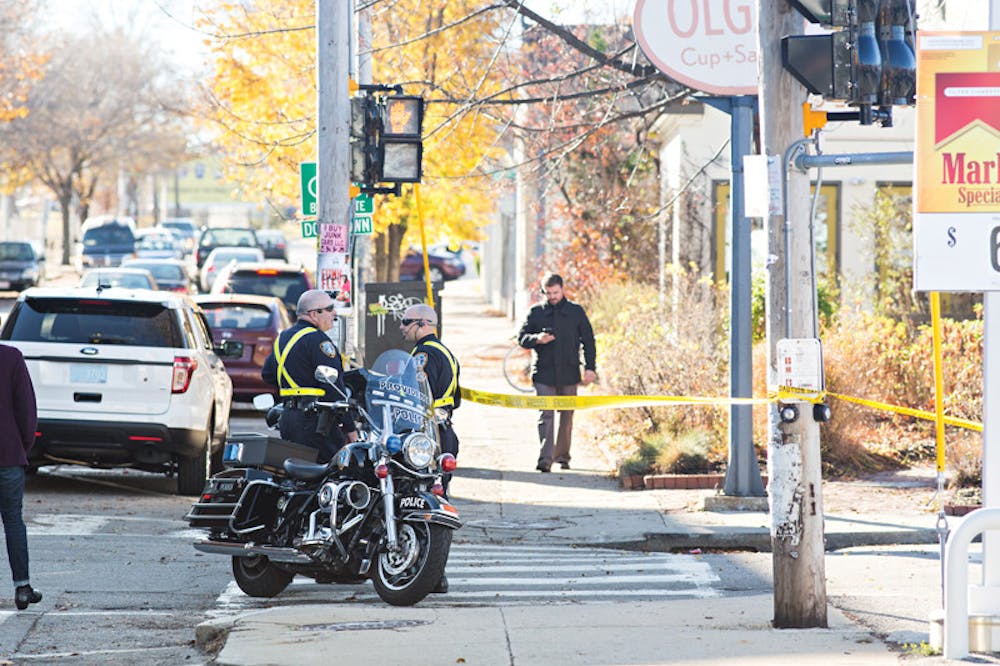An underground explosion dislodged eight manhole covers in the 300 block of Richmond Street Monday around noon, interrupting Brown University Shuttle services and leading University officials to advise building occupants in the area to take shelter in place.
The explosion was caused by a buildup of gases that accumulated underground due to a smoldering electrical cable, said David Graves, National Grid spokesperson. The shelter in place advisory was in effect until about 1:45 p.m.
Between 11:15 and 11:30 a.m., National Grid was notified of the evacuation of the 300 Richmond St. building when “the CO2 detectors had gone off, and there was a report of an odor in the building,” Graves said. Soon after, an “underground release of energy” caused the manhole covers to be dislodged, Graves said. These events all transpired before 11:45 a.m., he added.
Two of the eight manhole covers that were dislodged “moved significantly,” and “two people with minor injuries were transported” to the hospital,” said Lindsay Lague, a Providence Police Department public information officer.
The Brown Alert system sent out an email alert advising building occupants to shelter in place at 12:09 p.m., and an email about the shuttle service’s adjusted route — which avoided the streets closed by the police department’s perimeter around the manholes — was sent at 12:19 p.m.
“We found no presence of natural gas anywhere,” Graves said. He added that both gas and electric crews reported to the scene and immediately conducted air tests of the outside air and in the 300 Richmond Street building and adjoining buildings.
Upon further investigation, the crews found a smoldering electrical cable. It is likely that “the force of this gas dislodged the manhole covers,” Graves said, adding that “there may have been an underground ignition” if the electrical cable briefly caught fire.
This scenario would be consistent with reports of “a flash of flame coming from one of the manholes,” he said.
The cause of cable combustion was likely wear, Graves said. Given the high amount of voltage handled by large cables, the heat associated with such quantities of energy can burn through insulation, he said.
A notification that the shuttle service would resume its regular route was sent at 3:39 p.m.
“There’s no lingering danger to the University people down there,” said Mark Nickel, interim director of news and communications, adding that 233 Richmond Street, which houses University administrative offices, does not have power. The Alpert Medical School maintained “all of its normal activities,” and only a small number of medical students were affected by the shuttle’s adjusted route, Nickel said.
Nickel said the incident will not affect the University’s future development plans for the Jewelry District.

ADVERTISEMENT




